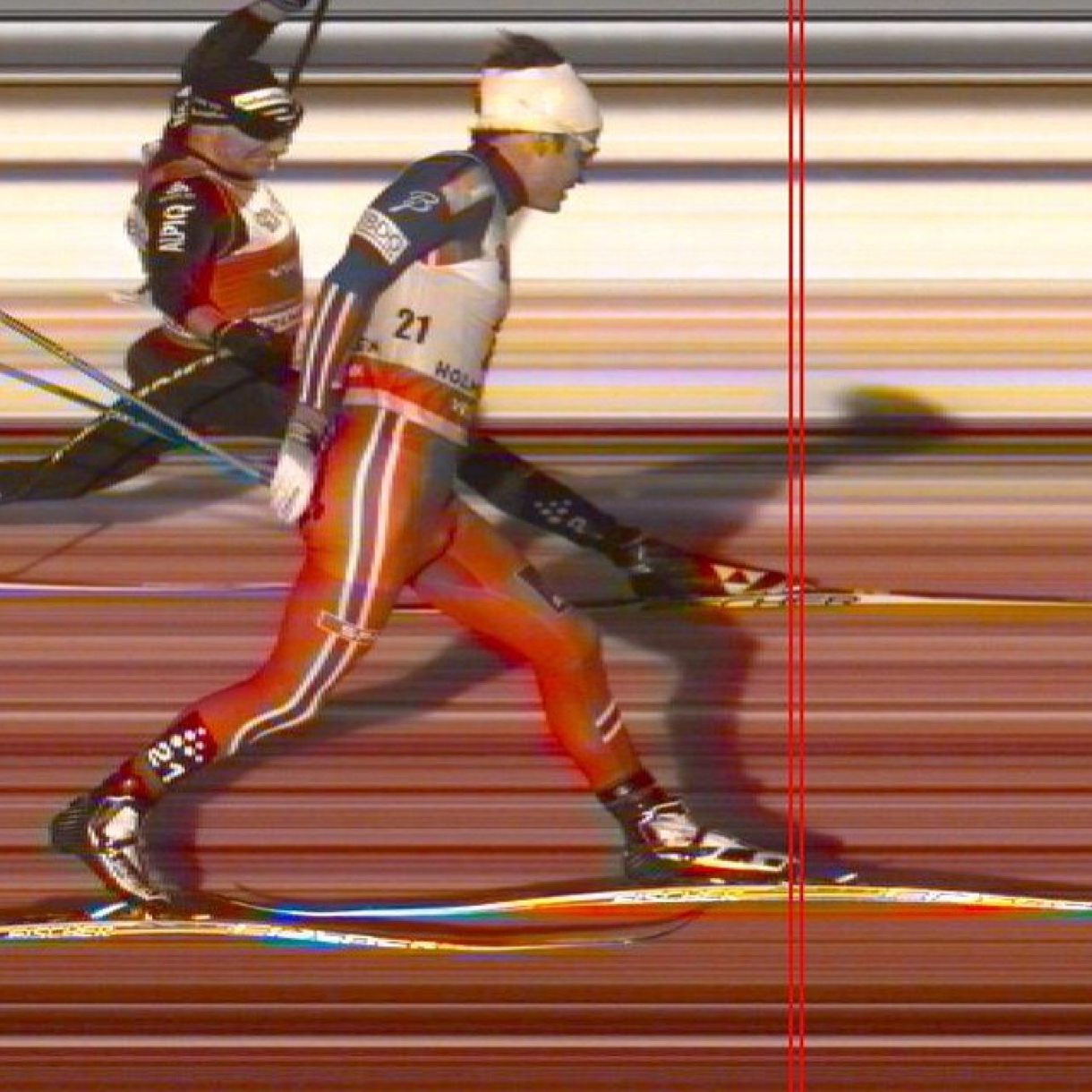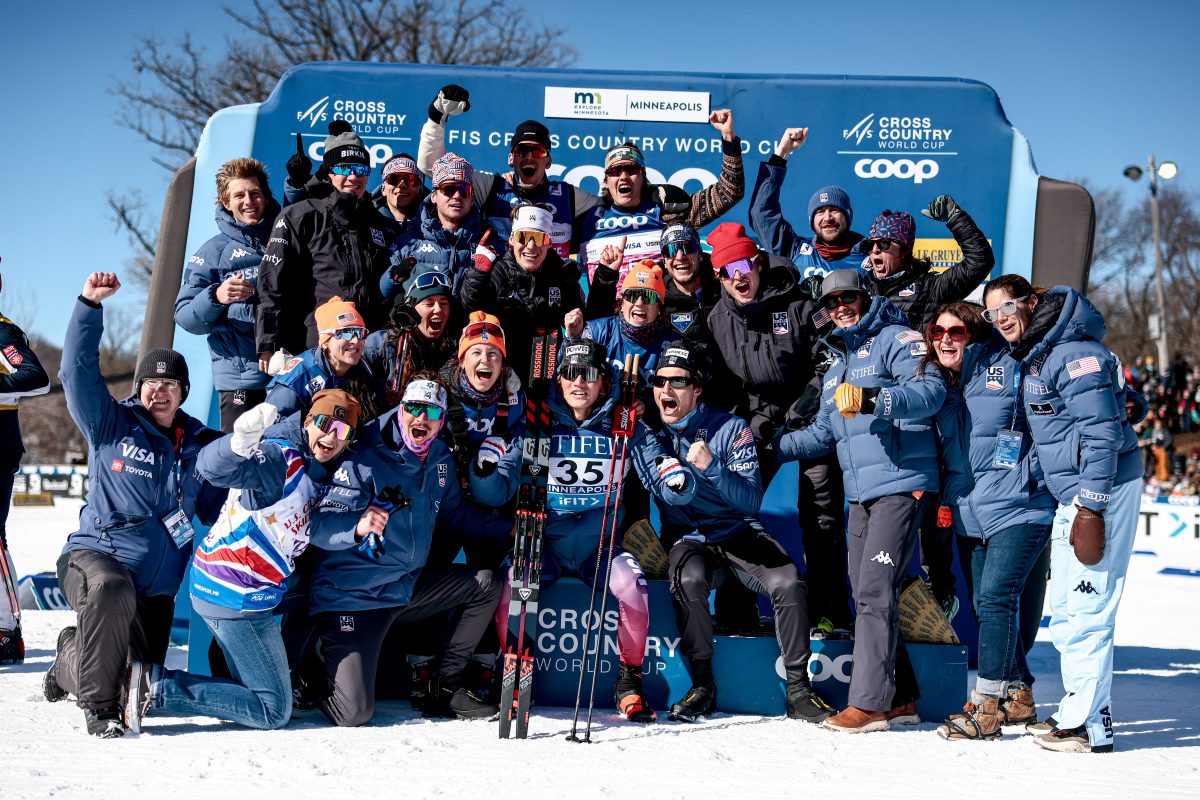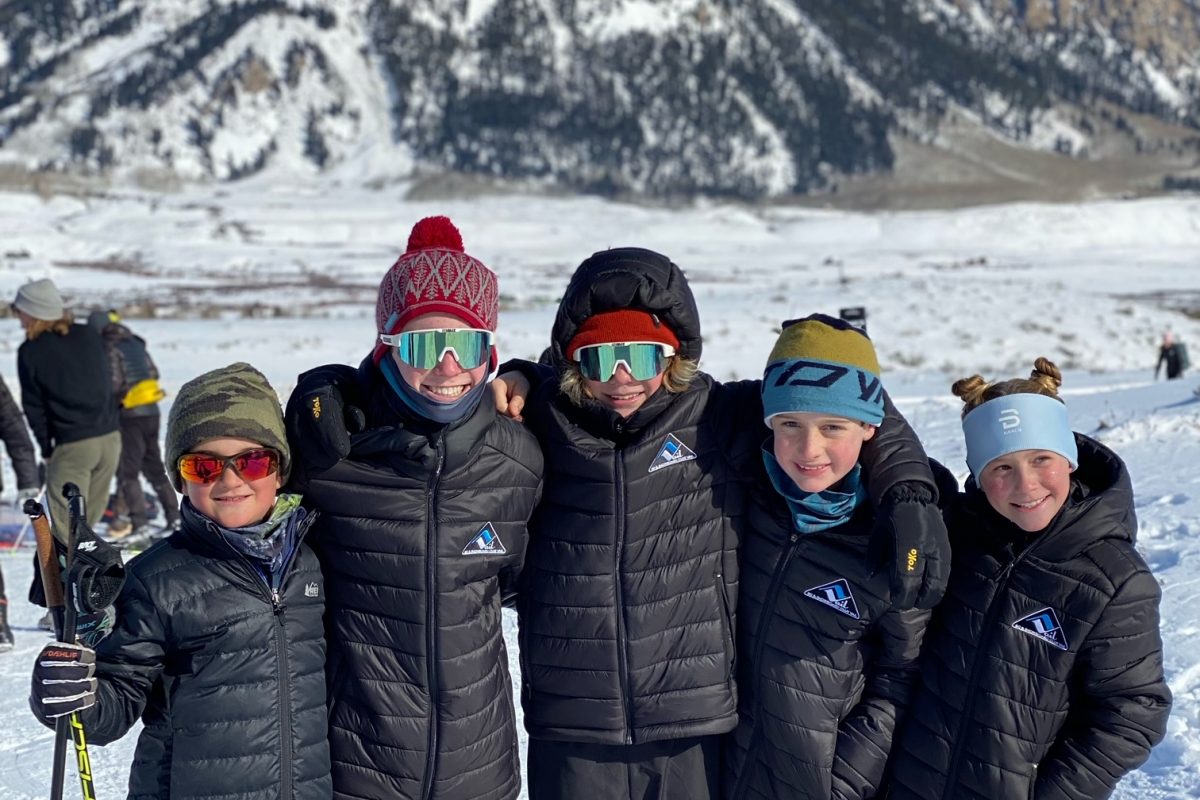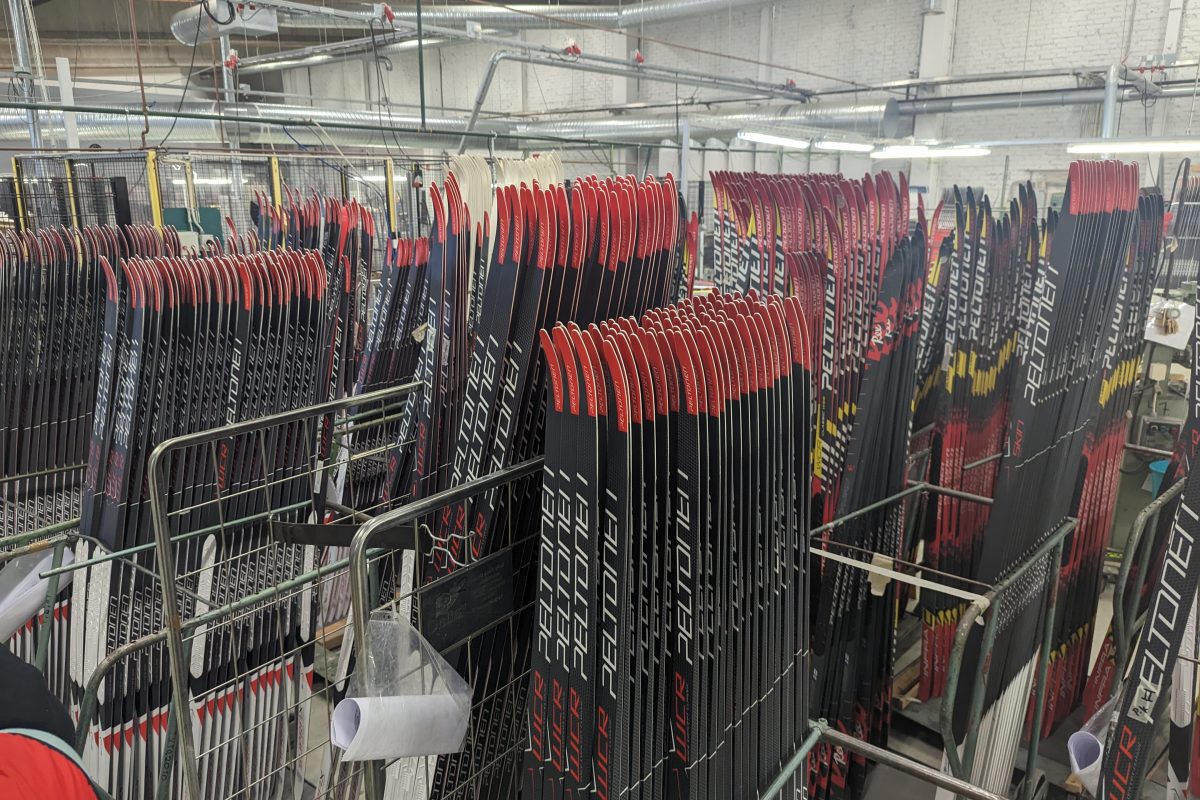
After racing 50 kilometers in Saturday’s Holmenkollen mass start in Oslo, Norway, the winning margin for Norway’s Sjur Røthe was merely the length of a toe over Switzerland’s Dario Cologna.
The Holmenkollen has been the season ending race since its first running in 1902, although it has recently been followed by World Cup finals in Sweden. Crowds in the thousands lined the course, out to enjoy a sunny Norwegian spring afternoon. As always, some of the spectators – most of whom were Norwegians – had camped out the night before to ensure a good vantage point for the race. Smoke from their campfires drifted out over the course.
They were not disappointed: Røthe took the win in 1:54:44, and teammate Martin Johnsud Sundby finished third and also took home the season-long World Cup title. Six more Norwegians finished in the top 20.
“I’ve seen how [Petter Northug] and others have won it here, and how the finishes have been here in recent years,” Røthe told Norwegian news service VG. “Along with that, I noticed that there was ice on the outer edge in last turn. I knew I had a great options if I put myself there. But then I had to come there first, and not have someone on the inside of me. It was perfect and just as I had dreamed.”
Although the warm sun was great for spectating, it made the snow that very soft, which slowed the pace of the race. While it might have appeared pedestrian, the pace was quite high as skiers worked their boards through the slush, which alternated with salted, icy portions of the course and sections in the shade which were much faster.
“It was a hard pace from the beginning with Sundby pushing for the first two laps,” Canada’s Alex Harvey, who was near the lead in the first 15 or so kilometers, told FasterSkier. “Anytime a 50 k is below two hours, when it’s kind of slushy conditions like it was today, it means that the pace was faster in the beginning.”
While leading, Sundby was constantly marked by Cologna, Petter Northug of Norway, and a pack of other skiers. Several breakaway attempts were countered. France appeared to have fast skis, and Jean Marc Gaillard and Robin Duvillard each led for several kilometers. Duvillard’s gap was a result of ski changes: at 33 k, almost the entire lead group decided to get new skis. But Duvillard and Norway’s Anders Gløerssen did not, and they took their ten-second lead and turned it into a breakaway which lasted six kilometers.
The upstarts were always brought back to the pack, though. And as the kilometers ticked on, that pack shrunk in size. From 37 men it winnowed to 25, then 20, then 15. By the 40 kilometer mark, one big name was missing from the potential winning group: Northug, who won the 50 k at World Championships two weeks ago.
The Norwegian was at that point sitting in 27th place, 2:40 back from the leaders. After dropping from the main group, he decided to treat the race as a workout and finished eight minutes back by the end.
“I’ve been tired after the World Championships,” Northug told Norwegian news service VG. “It costs to go all the distances. I may have had a mental lapse.You fall in a way, after having had such a good World Championships.”
At the 44.6 k mark, Norway’s Hans Christer Holund attempted to break away as the group hit a descent. Realizing it, Cologna matched the turn of pace and the two opened up a two-second lead. The rest of the pack were forced to respond or see the potential winners ski away.
Most couldn’t respond, but Sundby, Røthe and 41-year-old Sergei Dolidovich from Belarus bridged the gap and the lead pack became five. After another kilometer or more, Marcus Hellner of Sweden managed to weave his way through the shattered remains of the pack and sprint furiously up to the leaders: now they were six.
He arrived just in time for the Hellnerbacken, a short, steep hill leading into the Holmenkollen which is now named after him due to his victory in the sprint at 2011 World Championships. On that very same hill, Hellner had destroyed Northug and the rest of the competition to ski to a gold medal. In the 50 k, he shot up into the lead group and into third place.
The remaining few hundred meters featured jostling, lead changes, and an ever-increasing pace. On paper, Cologna and Hellner were probably the best bets to win, based on their usual finishing speed; but Sundby, too, has qualified for sprint heats this season, and in Røthe’s only sprint start this season he qualified ninth in the Lillehammer World Cup.
So up the final hill behind the biathlon range they went, and then over the top. As they descended into the stadium it looked like Hellner might be able to use the draft to slingshot into a medal position. But whether because of slower skis or tired legs, he faded, and Røthe led to the finish. Cologna sprinted furiously. His body never drew even with Røthe’s, but as the two got to the finish line, he threw his foot forward in a desperate attempt at a win.
It was impossible to tell who crossed the line first. Both men raising their arms in victory. After the jury convened and looked at the photo, it was determined that Røthe crossed first, the margin of victory was literally the length of a toe. Cologna was given the same time as Røthe and Sundby was third, half a second behind.
“I don’t think the photo finish gets any closer than this one,” Cologna told FIS.
Røthe had known that Cologna would be coming for the win, but he was confident he could hang on.
“I always trust my sprint,” Røthe told NRK. “If I’m first entering the finish, I have a chance. If I have to pass people, it is worse.”
For Røthe, it was the first World Cup win ever – and on Norway’s biggest stage.
“It’s is a dream for me,” he told FIS. “This is a very emotional moment. I can’t believe I have won this race. It has been a very difficult season for me but I have been training for this race for the past few weeks and it’s incredible that this happened. The crowds for so loud cheering me along with my teammates.”
Røthe has had back problems all season, and raced only lightly. His teammates were astounded that he could come back and win the Holmenkollen.
“I am so happy for Sjur,” Sundby said. “It has been a tough couple of months for him, so to see him win here today is just great.”
“That he has trouble, it is impressive that he comes back and takes his first World Cup victory here in Holmenkollen and on a 50 k,” Northug told NRK. “It’s the World Cup race you most want to win, so it is impressive.”
Although he missed out on the win, Cologna victory secured his third World Cup distance globe.
“For sure I wanted to win but I am also very happy to win the Distance Overall crystal globe,” Cologna told FIS. “After two Olympic gold medals last year I expected more this season but it doesn’t always go as planned. But to win the distance globe and be second in the Overall standings I must still be happy with my season.”
He also skied into the history books: Cologna became the first man to ever win the Distance crystal globe three times; he also won in the 2010/11 and in 2011/12 seasons.
Dolidovich finished fourth, one-upping his fifth-place result from the 50 k in Sochi at the Olympics last season, and Hellner placed fifth.
The women’s season wraps up on the same course on Sunday with the Holmenkollen 30 k freestyle race.
–Vince Rosetta and Chelsea Little contributed reporting.



